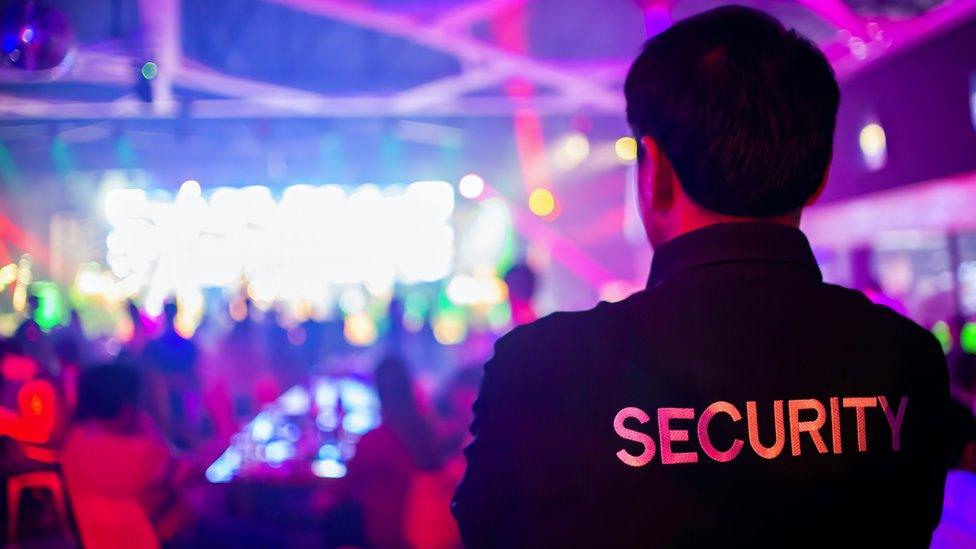London nightlife: One-in-five bouncers quit job during pandemic
- Published
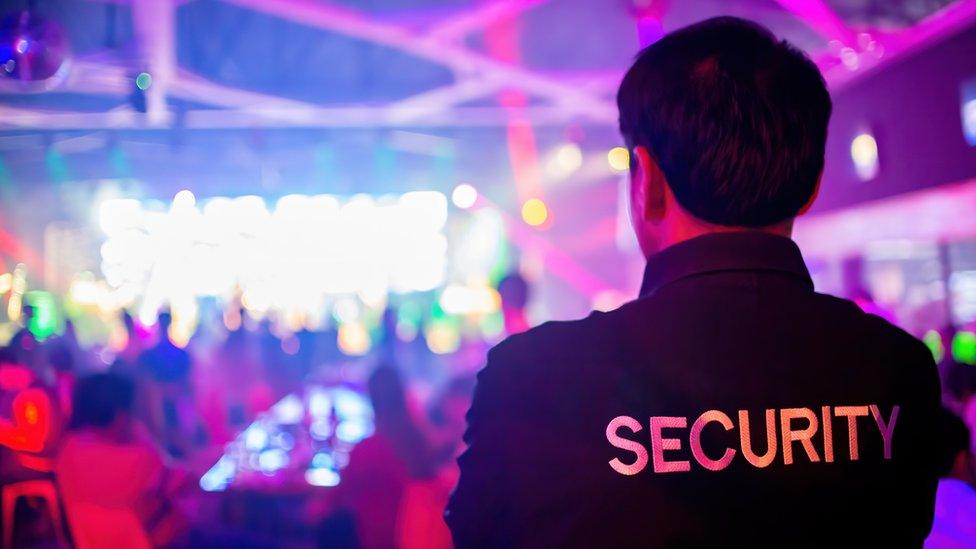
A report into London's night time economy found staff shortages, safety fears and the loss of the Night Tube, were holding back trade
One-in-five bouncers have left London's security industry since the start of the pandemic, it has been revealed.
A City Hall report into London's night time economy found staff shortages, safety fears and the loss of the Night Tube, were holding back night trade.
The study also found door security staff levels were at about 80% of pre-Covid levels.
Nightclub bosses said Mondays and Fridays were "a lot quieter" due to people working from home.
One factor connected to staff shortages and job security was the continued Covid crisis, which had seen Christmas bookings cancelled and Friday nights hit hard by a shift to hybrid working, the report stated.
Paul Kohler, the owner of CellarDoor Nightclub, said their usual customers were "not going into work five days a week" and "tend to go in in the middle of the week".
Julian Bird, the chief executive of the Society of London Theatre, said he was also seeing "quite large shortages of staff" particularly in technical areas like stage management, sound and wardrobe, and a "real scarcity" in marketing.
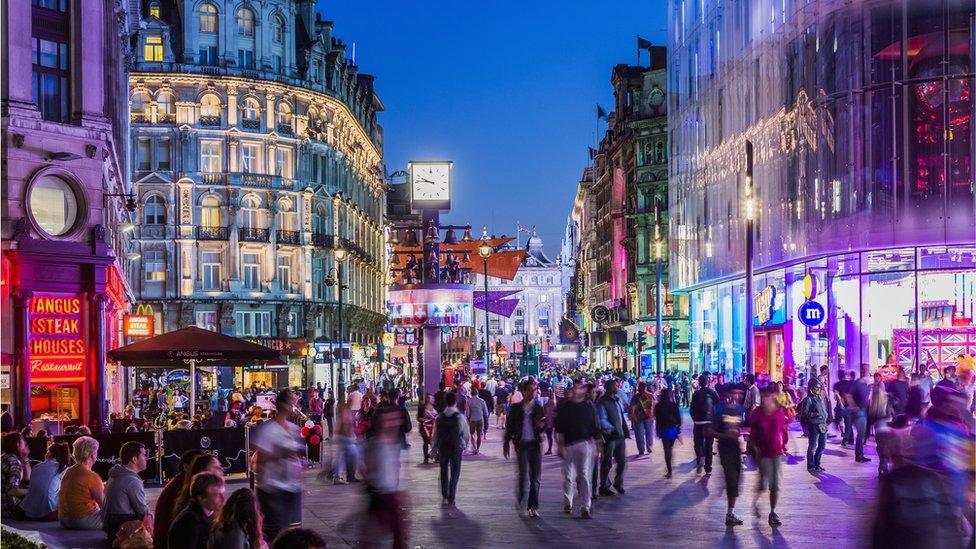
Nightclub bosses said Mondays and Fridays were "a lot quieter" than usual
City Hall said its £7m "Let's Do London" tourism recovery campaign was under way to help increase footfall, consumer spend and boost confidence.
A spokesperson said: "The mayor is incredibly proud of London's night time economy which is the best in the world and is vital to the capital's social and economic recovery.
"He is also proud to have brought back the first two Night Tube lines and the night Overground.
"He works closely with London councils, local authorities, the police and night time industries to support and champion business friendly licensing practices across the capital."
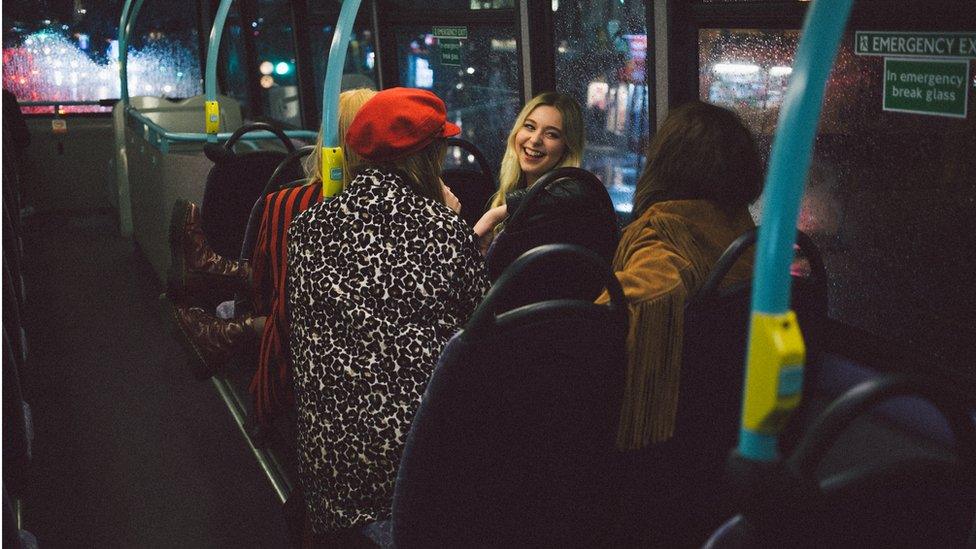
The report said safety concerns had contributed to the decrease in London's night time activity
London's night time businesses employed 594,200 workers and contributed £17bn-£26bn to the UK economy before the pandemic, which saw lockdowns enforced multiple times until London fully reopened on 19 July 2021.
Mark Davyd, the CEO of London Music Venue Trust, said advance ticket sales were still "about 35% off where we would normally expect to be".
He said: "Pre-booking of advance tickets beyond probably the end of this month is significantly down, much lower than we would expect for this period."
The issues extended beyond Covid concerns to safety too, with the return of the Night Tube "critical" for clubs and bars to recover, according to James Lindsay, CEO of the Royal Vauxhall Tavern.
"Clearly, for Friday night and Saturday night, getting the Tube back up and running again is critical to all our business recoveries in London," he said.
The Economy Committee made 12 recommendations to City Hall, including that the mayor prioritise training for the hospitality and creative sectors and for the government to look at work visas to support the night time economy.
Committee chairman Shaun Bailey said: "Following months of uncertainty and upheaval, we need to rebuild consumer confidence, address skills and labour shortages, and drive footfall to venues.
"It's crucial that the mayor does everything he can to support London's night time economy and that it receives the continuous support it needs, to keep the lights on."
Related topics
- Published21 March 2021
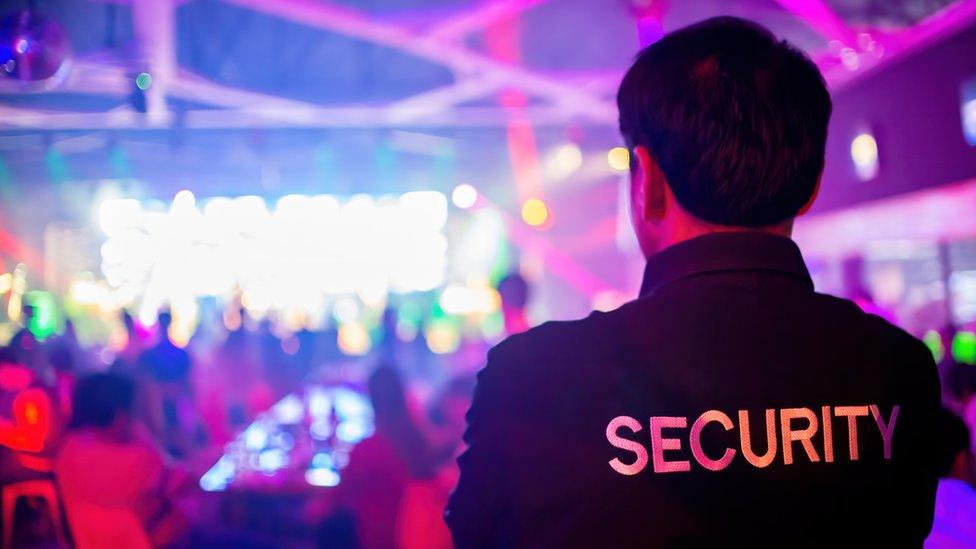
- Published19 July 2021
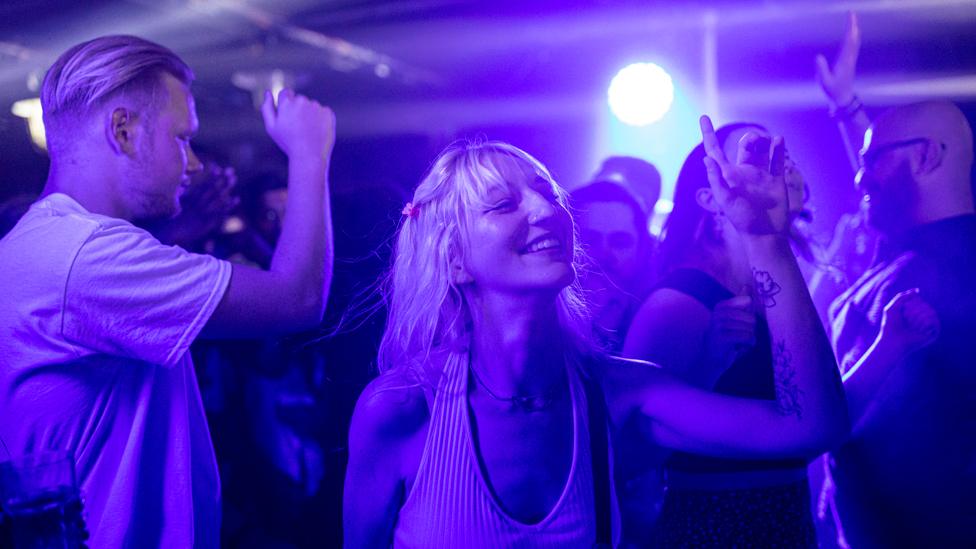
- Published7 October 2021
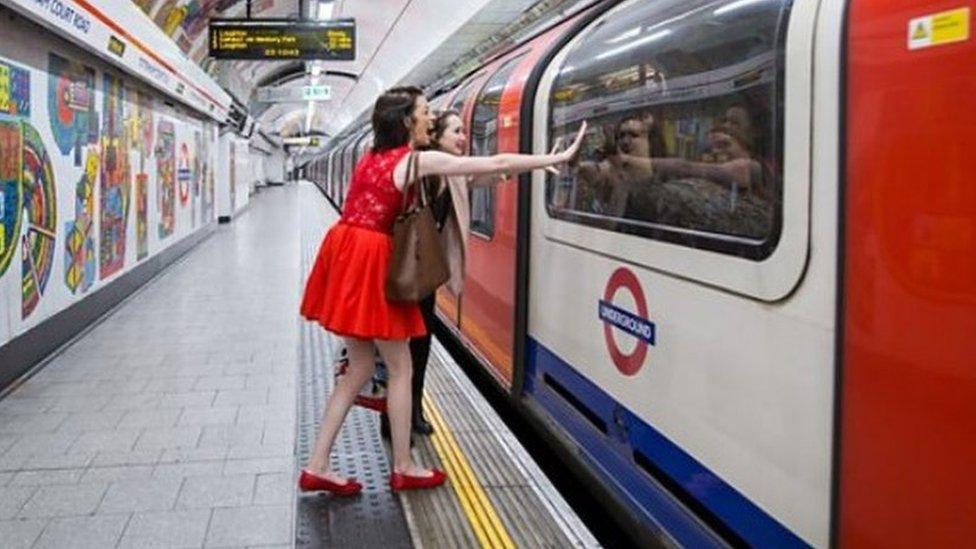
- Published18 October 2021
